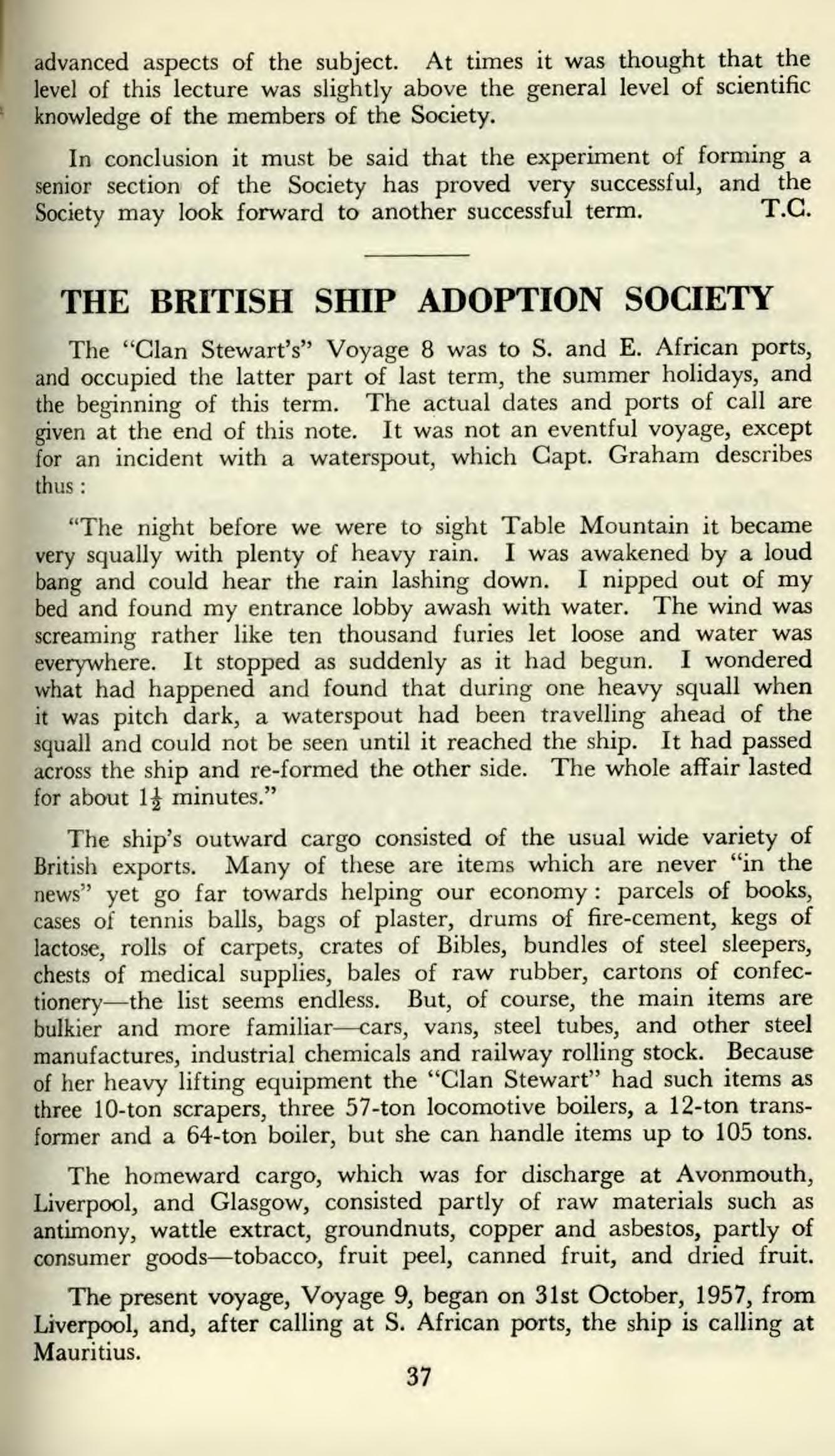
2 minute read
The British Ship Adoption Society
from Feb 1958
by StPetersYork
advanced aspects of the subject. At times it was thought that the level of this lecture was slightly above the general level of scientific knowledge of the members of the Society.
In conclusion it must be said that the experiment of forming a senior section of the Society has proved very successful, and the Society may look forward to another successful term. T.C.
The "Clan Stewart's" Voyage 8 was to S. and E. African ports, and occupied the latter part of last term, the summer holidays, and the beginning of this term. The actual dates and ports of call are given at the end of this note. It was not an eventful voyage, except for an incident with a waterspout, which Capt. Graham describes thus : "The night before we were to sight Table Mountain it became very squally with plenty of heavy rain. I was awakened by a loud bang and could hear the rain lashing down. I nipped out of my bed and found my entrance lobby awash with water. The wind was screaming rather like ten thousand furies let loose and water was everywhere. It stopped as suddenly as it had begun. I wondered what had happened and found that during one heavy squall when it was pitch dark, a waterspout had been travelling ahead of the squall and could not be seen until it reached the ship. It had passed across the ship and re-formed the other side. The whole affair lasted for about 14 minutes."
The ship's outward cargo consisted of the usual wide variety of British exports. Many of these are items which are never "in the news" yet go far towards helping our economy : parcels of books, cases of tennis balls, bags of plaster, drums of fire-cement, kegs of lactose, rolls of carpets, crates of Bibles, bundles of steel sleepers, chests of medical supplies, bales of raw rubber, cartons of confectionery—the list seems endless. But, of course, the main items are bulkier and more familiar—cars, vans, steel tubes, and other steel manufactures, industrial chemicals and railway rolling stock. Because of her heavy lifting equipment the "Clan Stewart" had such items as three 10-ton scrapers, three 57-ton locomotive boilers, a 12-ton transformer and a 64-ton boiler, but she can handle items up to 105 tons.
The homeward cargo, which was for discharge at Avonmouth, Liverpool, and Glasgow, consisted partly of raw materials such as antimony, wattle extract, groundnuts, copper and asbestos, partly of consumer goods—tobacco, fruit peel, canned fruit, and dried fruit.
The present voyage, Voyage 9, began on 31st October, 1957, from Liverpool, and, after calling at S. African ports, the ship is calling at Mauritius.










